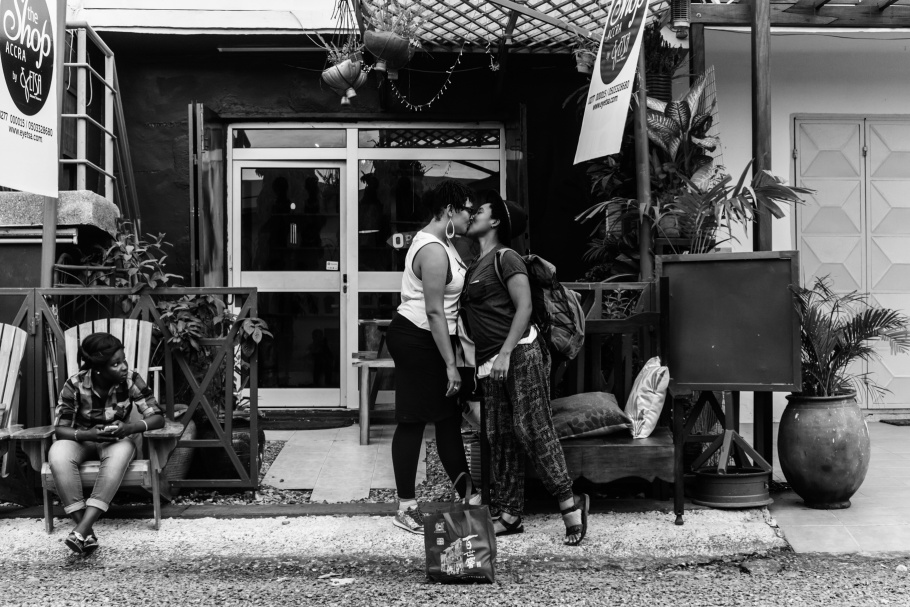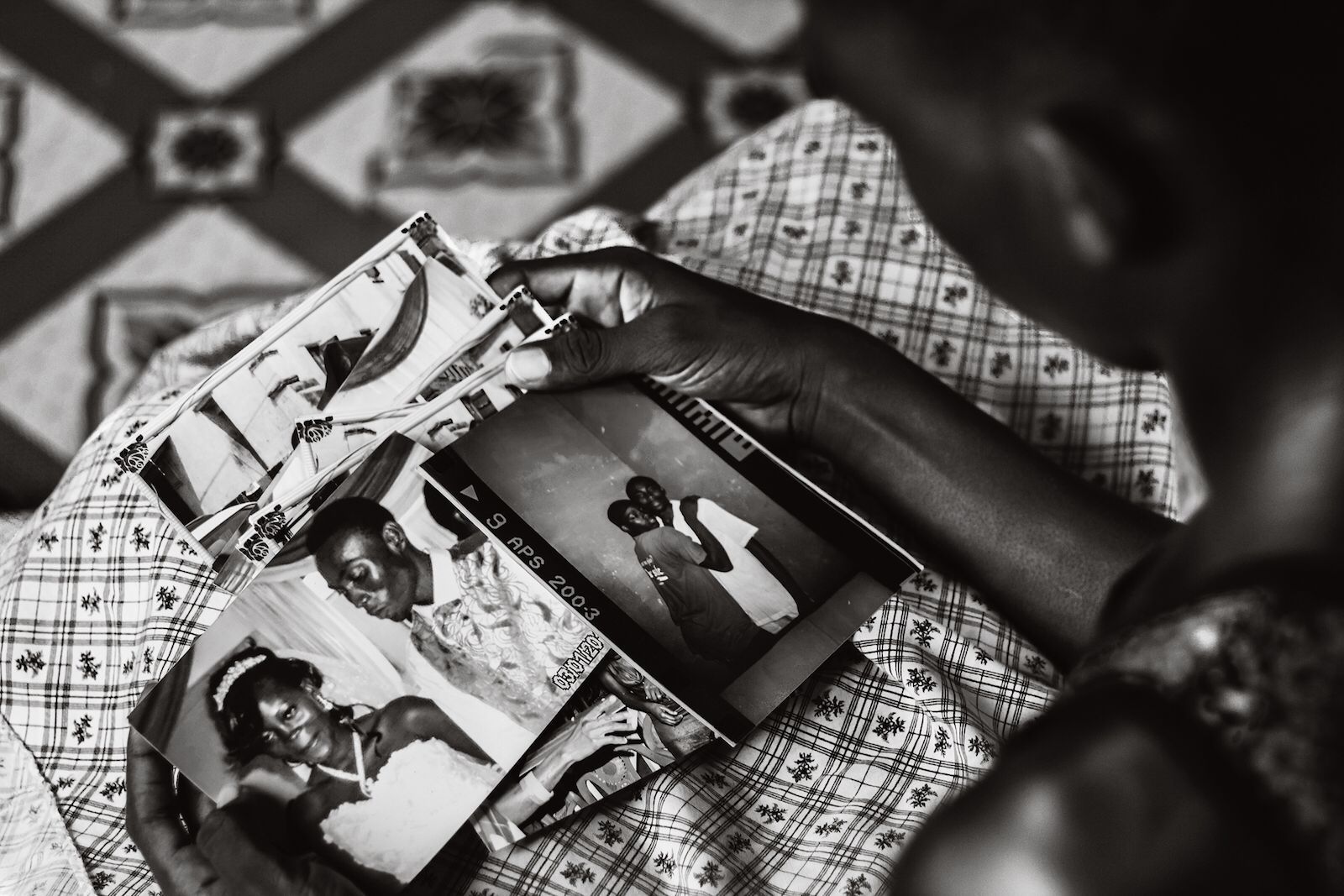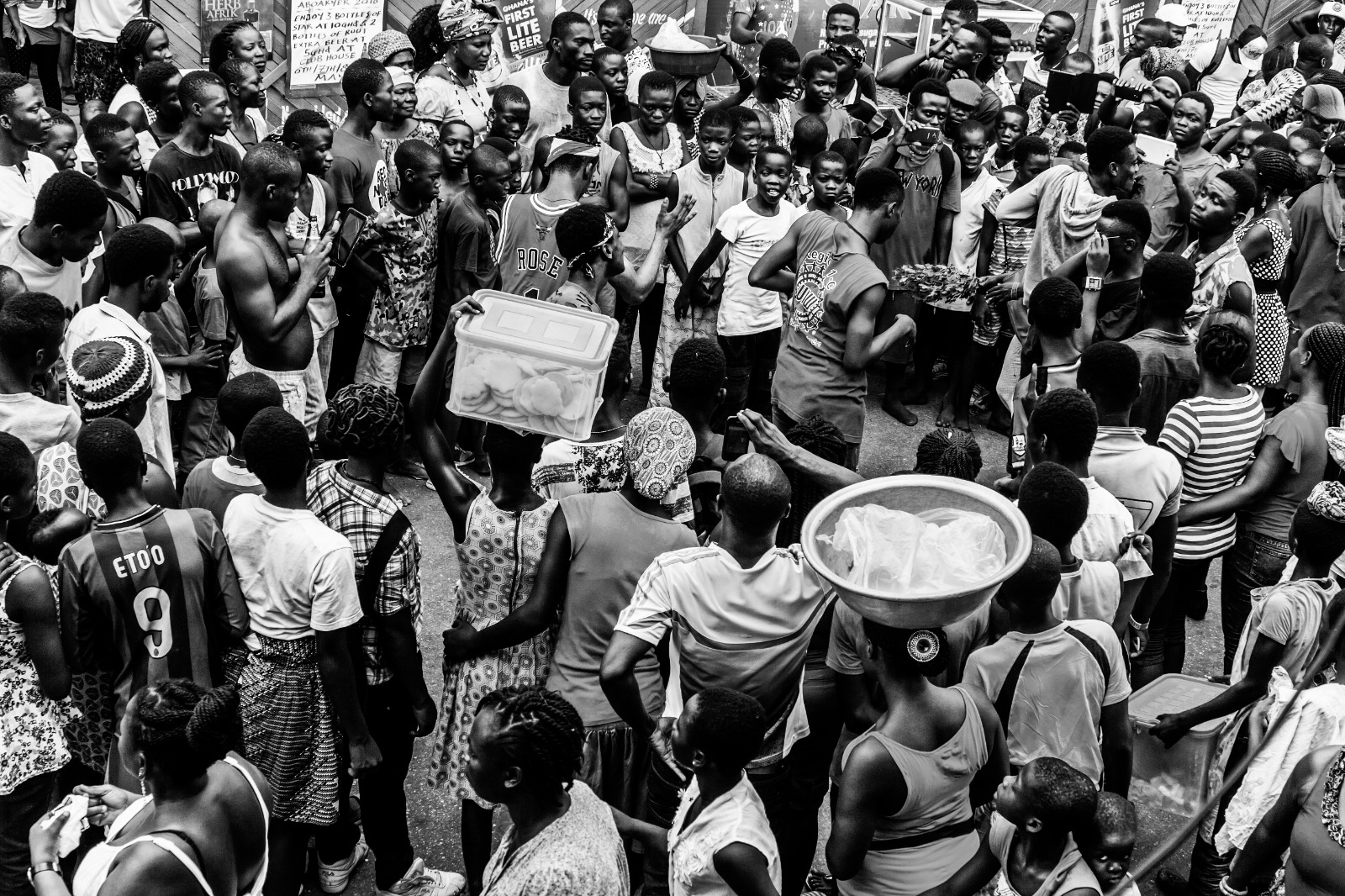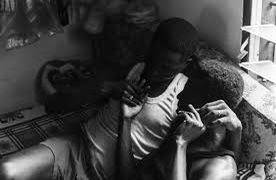An important part of our work at SMG is creating opportunities for collective organizing, learning with diverse communities, and developing the skills necessary to create a more just world. Collective organizing can look many different ways, including building intentional community, collaborating, and engaging in strategic action.
In June 2021, SMG members created an audio documentary sharing stories of family acceptance. We realized that so often, LGBTQ+ Ghanaians are told that by accepting ourselves, we will lose our close family relationships. While this is often true, it is not the only truth. Our hope is that for those navigating the pain of rejection, you may see possibilities for something better; for those on that bumpy road towards acceptance, it smooths out; and for those who have chosen not to take this path, know that your choices are equally valid. You can listen to all the stories by scrolling down.
Queer Feminist Organizing in Ghana
In April 2021, in partnership with Everyday Orientalism, we hosted a panel conversation with Nana Yaa Agyepong, Fatima Derby, and Zeeyyah Mudasir, three queer Ghanaian activists, and El-Farouk Khaki, a human rights and social justice advocate and refugee lawyer to discuss feminist organizing, religion and spirituality, and strategies for collective action.
Family Acceptance: An Ally

Transcript: An Ally
[Music: Peacetime by Blue Dot Sessions]
[Photo: Eric Gyamfi]
My sister found some photographs of me and the person that I was dating at the time and decided to share that with the entire family. So my whole family kind of knew that I was not straight, but nobody was really addressing it. I think everyone was actually avoiding it for a while.
A couple of years later, I had moved to DC and my mom wanted to visit, my mom and my little brother.
The day before my mom gets here, I texted her and I told her, I'm happy for you to stay with me. I just want you to know that I live with my partner.
My mom responded that she didn't understand what I was saying. And I was like, okay, well, you know, when you get here, you might understand it better. I was very anxious, you know, waiting for the worst thing to happen. Kind of regretting inviting my mom over, even though my mom has always been very supportive and very caring.
I think this was just an entirely different realm of asking for support. I just knew as a Christian woman coming from Ghana. There are just certain things that people aren't comfortable with My mom finally gets here. I pick her up from the airport.
We finally get back to our apartment and my mom completely just lights up meeting my partner and she was super friendly. We made dinner. We all ate together.
Everyone goes to sleep. I was expecting, you know, some kind of reaction with the fact that my partner and I were sleeping in the same room. But the next day we woke up and things were still going well.
My mom asked us if we wanted to go shopping. Throughout that entire day, um, of driving my mom around places. She actually didn't speak to me at all. Her and my partner became like instant friends and they were having deep conversations.
Before my mom left, she told me, I know that you've withdrawn from the family because of, you know, your sexuality and everyone judging you for it. At the end of the day, you're my daughter. I'm very proud of you and everything you've accomplished. And as far as I'm concerned, if you're happy, I'm happy. You just need to do what's best for you. And you don't need to force yourself into a relationship with a man, if that's not what you want.
Since then, my mom stopped asking questions about when are you going to get married and have kids and all of these things. And now she's like, oh, you need to find someone to live with. You can't, you know, be by yourself. You need to find somebody to be with. And it's all very gender neutral, which I appreciate. She's no longer pushing for kids.
Even when I went back home to Ghana, a couple of years ago before the pandemic, my mom just went, you know, you have to be safe in this country. I'm not going to ask you what you're doing when you go out at night, but you just have to be safe. Always make sure that you're, you know, watching your back because people might not understand you. Which was a truth that I needed to hear, but it was also very kind.
My mom and I's relationship has grown immensely. And I think over time, my mom has done some work in getting the family to accept me as well. I've noticed a lot of changing attitudes.
I do appreciate my mom being an ally. That has always meant a lot to me.
Family Acceptance: Showing Up

English Translation: Showing Up
[Music: Clouds at Castor Ridge by Blue Dot Sessions]
[Photo: Eric Gyamfi]
The time I felt love from my family was when I was arrested. I was attacked in my own house by a group of people claiming that I was teaching their son to be gay by sharing educational materials.
I was attacked and beaten. They stole my money and my phone. They actually turned my whole apartment upside down. They stripped me naked and they were chasing me onto the street. I had to run for my life for about half an hour. When the police were looking for me, I ran away. A friend of mine was still at my place, so they arrested him. And they caught and arrested me. The arrest was for being gay and also giving education to a gay person.
I was beaten mercilessly. I had wounds all over my body and it got to a point that my family found out about what was going on. So my dad came into the police station with my grandmother and my family members. And they had to see to it that they ended the case by paying money.
They had to bail us out. They were going up and down and bringing us food while we were in the cell. They were giving us some words of encouragement and hope that there is still life after being in jail.
What I would tell the young ones or people struggling with family acceptance is that it's not easy, but they should have the hope and the courage that they can do it.
They just have to be determined. And also let the family know that there is more to them than their sexuality. There is more to them as LGBT people.
Family Acceptance: Little Affirmations

Transcript: Little Affirmations
[Music: Dowdy by Blue Dot Sessions]
[Photo: Eric Gyamfi]
I am not “out” in quotes to my family, even though there is some sort of shared open secret that I'm gay. But here and there, there's always these sort of affirmations. My mom, sometimes she will say, “You know, you don't have a wife, you don't have a husband. Just buy me shoes or buy me bags!”
To me, that is kind of her way of acknowledging that she knows without openly saying you're gay. That is a kind of support. It is not the kind of support that we usually see on television. But it is a kind of support.
My siblings don't ask me questions such as “when are you going to get married?” They actually sort of ignore and laugh every time an NT makes a comment like is he going to ever get married to a woman basically. So that sort of forms a barrier of support that again, it's not necessarily that open, that outspoken, that overt, that explicit.
Family Acceptance: Growth and Possibility

Transcript: Growth and Possibility
[Music: Calgary Sweeps by Blue Dot Sessions]
[Photo: Eric Gyamfi]
It was my first year of college in December of 2005 and I was visiting Ghana from university in the US. And I shared with my parents that I had no intention of a heterosexual marriage and children.
Women in their thirties in Ghana who are unmarried and especially without children face particular kinds of social sanctions, even today, across class lines.
We were in my parents’ bedroom and my mother turns to my father and says, “Are they trying to kill me?” And my father calmly turns to me and says, “Don't try to kill your mother.”
Right? So complete trauma.
So in 2006, I was doing some work volunteering on same-sex marriage campaigns in New Jersey and New York. I remember having a conversation with my mother about the work that I was doing. I shared with her my outrage at the time at the injustice that some people could get married and other people couldn't.
I really was surprised by her reaction, which was, yes, this is an inequality. And it's really cool that you are working to counter this injustice, because if people want to be married, they should be allowed to get married.
So that's a different kind of family acceptance.
I took my partner home to Ghana with me. We had at the time been dating for about three years. My family knew about them.
There was a lot of tension between us. Yet when I took my partner home, they hosted us in their house. My mother cooked for us. My father grilled my partner in a way that now in retrospect, all these years later, I might interpret as the kind of vetting that one does when assessing the seriousness of their child's potential partner.
Even though that visit was very tense, it still nevertheless gave my parents an opportunity to meet my partner and to kind of see us in a different light.
The following year, we had a commitment ceremony. My father forbade it, my mother sent me a letter asking me to reconsider, have some sense, think about the family and the shame and all of this sort of stuff.
When we had that commitment ceremony, I had a few cousins show up. I received a card congratulating me from another one of my mother's siblings and, and those are political choices, right? I did not expect them to be as supportive as they were. That matters a lot because it also kind of shows that our families do not have a monolithic perspective.
My partner and I have been together for nearly 10 years now. My parents have just kind of accepted, I think, the reality of the relationship.
They could keep fighting, but it's a useless fight. And, and so instead, you know, they ask questions about how we're both doing.
My mother is a praying woman. She prays for me and my siblings and my partner. My father came to visit us, he was making a real attempt to get to know my partner as an individual, as well as, as the person they are in my life.
And all of that really kinda demonstrates growth and possibility.
